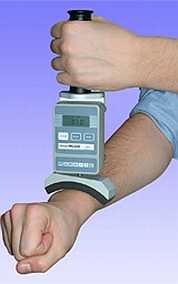






Both ergonomics and usability break down product use into basic tasks and settings that they can analyze and report upon (i.e. task analysis and environmental analysis). Profesionals in both disciplines time users to measure the (in)efficiency of given products and tasks.
However, the two disciplines differ in the instruments they use to measure limitations imposed on workers and users.
ERGONOMICS TOOLS
Conceptual tools
3d Modelling software: programs like autoCAD help ergonomists visualize and test products/environments digitally. This saves money, time and volunteers.
Biomechanical models: These mockups of the human body, come pre-equipped with load bearing measures, to test muscle use and posture
Check lists: sometimes computerized, check lists represent an inventory of common errors & problems to watch for
Diagnostics/Scales: These instruments are usually field-specific (e.g. infection control) and like chcklists assess common errors and tasks, unique to the field. In healthcare, they would be equivalent to scales for depression, pain etc.
Physical Tools:
Tape measure: an iconic tool in ergonomics
Stop watch: used in various measurements of tasks (e.g reaction time)
Force Gauge: helps measure loadbearing weight and pressures on the human body
Lumbar Monitor: analyzes posture and torque to the spine
Video/Audio Recorders: recording user tests of products & systems can yield insight later
Meters: Gauges of light, vibration, sound, radiation, etc measure a worker's environment for dangerous levels of exposure
USABILITY TOOLS
Vision Simulators: There are various test-images and diagnostics used to simulate how a website would appear to users with colour blindness, myopia or hyperopia (near/far sightedness) amongst other visual problems
Readability Measures: In terms of content, usability experts often gauge the language of texts with measures like Flesch-Kincaid
Accessibility Measures:
There are many seals of approval that can be attached to a website to ensure it is usable by people with different disabilities. (e.g. W3C, Bobby, etc)
Eye Tracking Software/Hardware:
With the advent of webcams, usability experts can observe what users look at the most.
Paper Prototyping: A method of designing a site on paper before contracting programmers to build the site/application